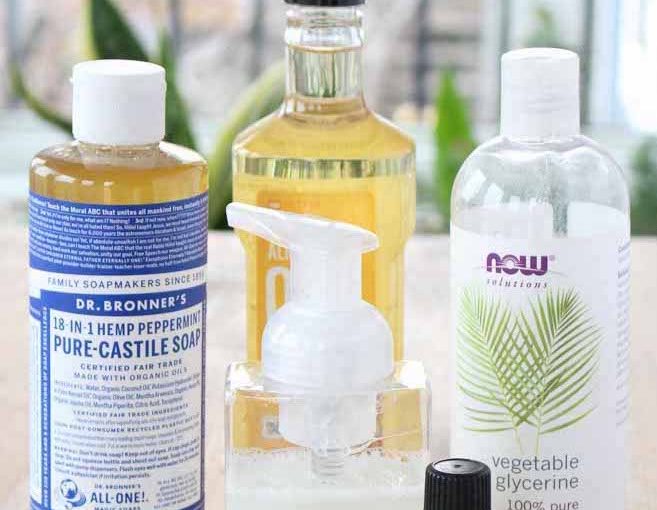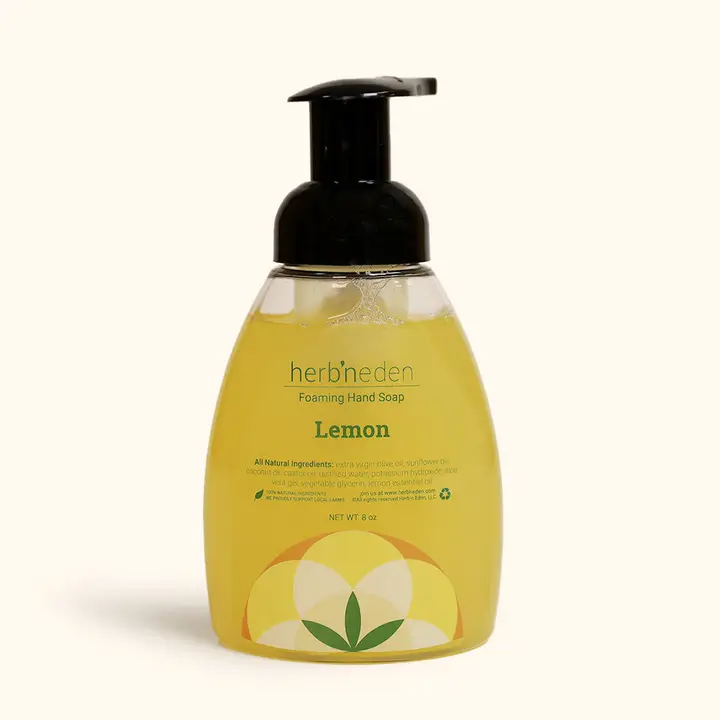The Importance of Eco-Friendly Hand Wash
In today’s world, the choices we make in our daily hygiene routines carry great significance. Using eco-friendly hand wash soap is not just a personal preference but a crucial step towards a sustainable future. The environmental footprint of traditional soaps is alarming, with harsh chemicals going down our drains and impacting aquatic ecosystems. Eco-friendly hand wash formulas, on the other hand, use biodegradable ingredients that minimize harm to our planet.
The shift towards green products reflects an awareness of the damage caused by synthetic substances. These substances often found in regular hand wash soaps, can disrupt natural processes and harm wildlife. By opting for eco-friendly hand wash, we contribute to reducing the volume of pollutants entering our waterways. Moreover, the production of greener soaps often involves ethical manufacturing practices that support fair labor and reduce carbon emissions.
The importance of using eco-friendly hand wash is clear. It allows us to practice cleanliness while remaining responsible stewards of the environment. We have the power to influence market trends and inspire companies to invest in eco-friendly alternatives. Choosing sustainable hand wash soap can help safeguard our health, protect our natural resources, and lead the way towards a greener, more conscious consumerism.
Current Trends in Sustainable Hand Soap
Sustainable hand soap is gaining traction for its environmental benefits. Current trends focus on natural ingredients, minimal packaging, and local sourcing. Producers are now favoring materials like plant-based oils, ethical sourcing, and organic additives. These choices show a commitment to both skin health and the planet. Another trend is solid hand soap bars. They offer less waste than liquid soaps in plastic bottles. Brands are stepping up with refill stations, too. They reduce single-use packaging and encourage reuse. There’s also a growth in cruelty-free and vegan soap options. This reflects a broader consumer shift towards ethical consumption. These trends suggest a future where hand wash soaps align more with eco-values. As a result, people can expect even more sustainable offerings coming their way.
Key Ingredients for Environmentally Safe Soaps
When we talk about eco-friendly hand wash soap, the key ingredients make all the difference. Sustainable hand wash soaps focus on natural, non-toxic compounds that are safe for both the environment and our skin. Here are some key ingredients that are commonly found in environmentally safe soaps:
- Plant-Based Oils: Coconut, olive, and almond oils are popular for their ability to cleanse gently without stripping moisture from the skin.
- Essential Oils: Used for natural fragrance and antibacterial properties, essential oils such as lavender, tea tree, and peppermint add therapeutic benefits.
- Glycerin: A byproduct of soap making, glycerin is a humectant that attracts moisture to the skin, keeping it hydrated.
- Aloe Vera: Known for its soothing and healing properties, aloe vera is often included in hand wash soaps for its skin-nourishing benefits.
- Natural Preservatives: To extend shelf life without harmful chemicals, eco-friendly soaps may use natural preservatives like vitamin E.
These ingredients are biodegradable, meaning they break down naturally without causing harm to the environment. Beyond the absence of harsh chemicals, these ingredients are often sourced ethically, contributing to a fairer and more sustainable production process. When choosing a hand wash soap, look for products that list these key ingredients, ensuring that your choice is helping to minimize environmental impact.
The impact of Packaging Choices on Sustainability
Packaging plays a crucial role in the sustainability of hand wash soap. The materials used for packaging can greatly affect the soap’s overall environmental footprint. Companies are recognizing this and are taking steps to minimize waste. Here are several ways packaging choices are influencing sustainability:
- Biodegradable Materials: Some brands use packaging made from materials that can break down naturally, leaving no harmful residues.
- Recyclable packaging: Using materials that consumers can recycle contributes to reducing landfill waste. This includes using glass or recyclable plastics.
- Refill Stations: These encourage customers to reuse containers. It cuts down the demand for new packaging and reduces plastic waste.
- Bar Soaps: Bar soaps often come with minimal packaging, sometimes as simple as recyclable paper.
- Concentrated Formulas: Concentrates reduce the size and amount of packaging required. This means less material is used and less waste is produced.
By choosing hand wash soaps with sustainable packaging, consumers can help decrease the negative impact on our environment. It is an easy yet powerful way to support eco-friendly initiatives. Always opt for hand wash soap with packaging that aligns with green principles.
Innovations Shaping the Future of Eco-Friendly Hand Wash
The eco-friendly hand wash soap market is embracing innovative practices to enhance sustainability. These innovations are not only eco-friendly but also user-friendly. They cater to the growing demand for products that support a clean and green lifestyle. Let’s explore some of these cutting-edge ideas that are shaping the future of eco-friendly hand wash.
- Eco-Friendly Dispensers: Brands are redesigning dispensers to reduce waste. New dispensers provide the right amount of soap to avoid excess use.
- Waterless Hand Wash Options: Water scarcity is a global issue. Waterless hand wash products are emerging to save water.
- Refillable Systems: More brands offer refillable hand wash containers. This helps to cut down on single-use plastics significantly.
- Smart Packaging: Companies are using smart design to make packaging fully recyclable or compostable.
- Biodegradable Formulas: Advanced biodegradable formulas are being developed. They ensure soap breaks down quickly without polluting the environment.
- Carbon-Neutral Production: Efforts towards carbon-neutral manufacturing are on the rise. This reduces the carbon footprint of the hand wash production process.
- Solar-Powered Factories: Some soap makers are turning to solar power for production. This move cuts down energy use and promotes renewable energy.
These innovations represent shifts in both technology and consumer values. They demonstrate a commitment to preserving our planet while maintaining high-quality hygiene standards. As eco-friendly hand wash soap becomes more mainstream, expect these innovations to become the norm. This will make it easier for consumers to make responsible choices without compromising on quality or convenience.
DIY Eco-Friendly Hand Wash Recipes
Embracing a sustainable lifestyle includes making our own eco-friendly hand wash soap. This not only ensures control over the ingredients but also reduces packaging waste. Creating your own hand wash soap is simpler than you might think, and can be a fun, eco-conscious activity. Here are a couple of easy recipes using safe, natural ingredients that you can try at home.
Basic Liquid Hand Soap Recipe
Start with:
- 1/2 cup of castile soap (plant-based liquid soap)
- 1/2 cup of distilled water
- 15-20 drops of your chosen essential oils
- 1 tablespoon of vitamin E oil (natural preservative)
- 1 tablespoon of aloe vera gel (for skin hydration)
Combine all the ingredients in a bottle. Shake it to mix well before each use.
Solid Hand Soap Bar Recipe
You will need:
- 1/2 pound of unscented, clear glycerin soap base
- 20 drops of essential oils for fragrance
- Natural colorants like turmeric or beetroot powder (optional)
Melt the glycerin base. Stir in the essential oils and colorants. Pour into molds. Let them cool.
Both recipes can be customized. Use plant-based oils and natural fragrances like lavender or tea tree oil for additional benefits. Choose ingredients that align with eco-friendly practices, and consider using organic where possible. Store your homemade hand wash soap in reusable containers to maximize sustainability. By doing this, you not only create an environmentally safe product but also partake in an effective step to reduce waste and protect our planet.
Tips for Choosing the Right Green Hand Wash
When searching for the perfect eco-friendly hand wash soap, the variety of options can be overwhelming. To make a choice that aligns with sustainable practices and meets your personal needs, consider these tips:
- Read Labels Carefully: Look for hand wash soaps with clear ingredient lists. Key eco-friendly elements include plant-based oils, essential oils, and natural preservatives. Avoid soaps with synthetic fragrances and parabens.
- Check Packaging: Opt for brands that use biodegradable or recyclable materials. If there are refill stations available, take advantage of them to reduce plastic waste.
- Look for Certifications: Certifications like EcoCert, USDA Organic, or Leaping Bunny signal that a product meets stringent eco-friendly and ethical standards.
- Consider the Source: Choose hand wash soaps from companies that practice fair trade and source ingredients sustainably. Local sourcing can also cut down on carbon emissions.
- Test for Skin Compatibility: Eco-friendly doesn’t always mean allergen-free. If you have sensitive skin, ensure that the hand wash is hypoallergenic.
- Evaluate Company Values: Research the brand’s commitment to the environment. Support companies that engage in carbon-neutral production or utilize renewable energy.
- Review Product Efficacy: Eco-friendly hand wash should still effectively clean. Check for user reviews to see how well the soap performs.
By keeping these tips in mind, you can choose a hand wash soap that not only guards the environment but also caters to your specific requirements. Decisions made by conscientious consumers can influence market trends and encourage more companies to offer sustainable solutions.
Challenges and Solutions in the Eco-Friendly Soap Market
While the eco-friendly soap market grows, it faces hurdles. Main challenges include cost, consumer habits, and industry regulations. High production costs for sustainable ingredients can lead to pricier products. These prices might deter budget-conscious buyers. Habit changes are tough, too. Many consumers stick to familiar, non-eco brands. Also, there’s a lack of strict rules on using the term ‘eco-friendly’. This can confuse shoppers.
To tackle these, we need smart approaches. Innovation in manufacturing lowers costs. This makes eco-friendly hand wash soap more affordable. Educating buyers about long-term savings and environmental benefits is vital. It can steer them towards greener choices. Better laws on product labeling will ensure clarity. This protects consumers from misleading claims.
The eco-friendly soap industry adapts, finding solutions to drive change. Collaboration between brands and consumers shapes a more sustainable market. With every challenge, there’s an opportunity to innovate and improve. Investing in eco-friendly hand wash soap’s future paves the way for a cleaner, safer planet.



